The Power of SaaS in Small Business Marketing

“The Power of SaaS in Small Business Marketing” explores the significant impact that software as a service (SaaS) has on the marketing strategies of small businesses. With SaaS solutions offering various tools and functionalities for investing, acquisition, and marketing, it has become an essential aspect of the business landscape. This article delves into the advantages of using SaaS in marketing, highlighting its ability to optimize processes, improve customer engagement, and drive business growth. By leveraging SaaS, small businesses can effectively compete in the digital marketplace and achieve their marketing objectives with ease.
The Power of SaaS in Small Business Marketing
Introduction to SaaS in Small Business Marketing
Software as a Service (SaaS) has revolutionized the way businesses operate, and small businesses are no exception. In the realm of marketing, SaaS solutions offer a wide range of benefits that can significantly enhance small businesses’ marketing efforts. From cost-effectiveness to streamlined collaboration, SaaS tools provide small businesses with the necessary tools and resources to compete in today’s digital landscape.
Benefits of Using SaaS in Small Business Marketing
1. Cost-Effectiveness
One of the key advantages of SaaS in small business marketing is its cost-effectiveness. With traditional software, small businesses often face high upfront costs for licenses and hardware. However, with SaaS, businesses can access powerful software tools on a subscription basis, eliminating the need for large upfront investments. This model allows small businesses to allocate their limited resources more efficiently, giving them access to cutting-edge marketing tools at a fraction of the cost.
2. Scalability and Flexibility
Small businesses often face the challenge of maintaining flexibility and scalability as they grow. SaaS solutions offer the scalability and flexibility necessary to adapt to changing business needs. Whether a small business needs to increase or decrease its marketing efforts, SaaS tools can easily accommodate these changes. Additionally, SaaS providers frequently release updates and new features, ensuring that small businesses stay ahead of the competition and have access to the latest marketing tools.
3. Automation and Efficiency
Efficiency is crucial for small businesses looking to maximize their marketing efforts. SaaS tools automate repetitive tasks, allowing small businesses to focus on more strategic activities. Automation not only saves time but also reduces the risk of human error, improving the overall efficiency and effectiveness of marketing campaigns. Whether it’s automating email campaigns or managing social media posts, SaaS solutions streamline marketing processes, enabling small businesses to achieve more with fewer resources.
4. Data-Driven Insights
Data is the backbone of successful marketing strategies, and SaaS tools provide small businesses with the necessary data-driven insights to make informed decisions. These tools collect and analyze vast amounts of data, providing valuable insights into customer behavior, preferences, and demographics. Small businesses can leverage this information to optimize their marketing strategies, target the right audience, and drive better results. By harnessing the power of data, small businesses can make proactive marketing decisions that align with their goals and objectives.
5. Streamlined Collaboration
Collaboration is essential for small businesses working towards their marketing goals. SaaS tools enhance collaboration by providing a centralized platform for teams to work together seamlessly. Whether it’s sharing files, brainstorming ideas, or tracking progress, SaaS solutions facilitate effective collaboration among team members, regardless of their physical location. This level of collaboration not only improves communication but also enhances overall productivity, ensuring that small businesses can execute their marketing strategies efficiently.
Choosing the Right SaaS for Small Business Marketing
1. Identify Marketing Needs and Goals
Before selecting a SaaS solution, small businesses must identify their specific marketing needs and goals. It is crucial to determine which areas of marketing require improvement and what objectives the business wants to achieve. Whether it’s lead generation, social media management, or email marketing, understanding these needs will help narrow down the options and choose the most suitable SaaS tool.
2. Research and Evaluate SaaS Solutions
Once the marketing needs and goals are established, small businesses should conduct thorough research to identify SaaS solutions that align with their requirements. It is crucial to evaluate each solution’s features, user reviews, and customer support to ensure its suitability. Online marketplaces, industry forums, and recommendations from trusted sources can provide valuable insights into the effectiveness and reliability of different SaaS tools.
3. Consider Integration and Compatibility
Small businesses must consider the integration and compatibility of SaaS solutions with their existing marketing stack. Seamless integration between different tools ensures that data flows smoothly and minimizes manual work. Compatibility with existing software, such as customer relationship management (CRM) systems or content management systems, is crucial for maintaining an efficient marketing workflow.
4. Analyze Pricing and Budget
Pricing is a vital consideration for small businesses, and it is important to analyze the pricing models of different SaaS solutions. Small businesses should consider not only the subscription fees but also any additional costs, such as implementation or customization fees. It is essential to choose a solution that offers the right balance between affordability and functionality, ensuring that the investment is aligned with the business’s budget and expected return on investment (ROI).
Implementing SaaS in Small Business Marketing
1. Assess Current Marketing Processes
Before implementing a SaaS solution, small businesses should assess their current marketing processes and identify any inefficiencies or areas for improvement. This evaluation allows businesses to tailor the implementation process and ensure a seamless transition to the new SaaS tool. By understanding existing processes, small businesses can make informed decisions regarding which aspects of the marketing workflow can be improved through SaaS solutions.
2. Training and Onboarding
To maximize the benefits of SaaS tools, small businesses must invest in comprehensive training and onboarding processes. Training ensures that employees are proficient in using the new software and can leverage its full potential. SaaS providers often offer training resources, tutorials, or even dedicated customer support to assist small businesses during the onboarding process. By investing time and resources into training, small businesses can accelerate the adoption of SaaS tools and ensure that employees can utilize them effectively.
3. Data Migration and Integration
When implementing a new SaaS solution, small businesses must consider data migration and integration with existing systems. It is essential to ensure a smooth transfer of data from legacy systems to the new SaaS tool, minimizing any disruption to the marketing workflow. Integration with existing systems, such as CRM or analytics platforms, allows small businesses to consolidate data and gain a holistic view of their marketing efforts. Proper data migration and integration are crucial for maintaining data integrity and maximizing the benefits of SaaS tools.
4. Monitoring and Evaluation
After implementation, small businesses should continuously monitor and evaluate the effectiveness of the chosen SaaS solution. Regularly tracking key performance indicators (KPIs) and comparing them against predetermined goals allows businesses to assess the impact of the SaaS tool on their marketing efforts. This evaluation provides valuable insights into the return on investment and helps identify any areas that may require further optimization or adjustment.
Examples of SaaS Tools for Small Business Marketing
1. Email Marketing: Mailchimp
Mailchimp is a popular SaaS tool for small businesses looking to enhance their email marketing campaigns. With features such as customizable email templates, automated workflows, and detailed analytics, Mailchimp enables small businesses to create personalized and impactful email campaigns that resonate with their target audience. Its user-friendly interface and robust integrations make it an ideal choice for small businesses looking to streamline their email marketing efforts.
2. Social Media Management: Hootsuite
Hootsuite is a comprehensive social media management platform that allows small businesses to manage multiple social media accounts in one place. With features like content scheduling, social listening, and performance analytics, Hootsuite empowers small businesses to effectively engage with their audience, monitor brand mentions, and track the performance of their social media campaigns. Its intuitive interface and extensive integrations make it a valuable asset for small businesses seeking to optimize their social media presence.
3. Customer Relationship Management: HubSpot
HubSpot offers a powerful CRM platform that helps small businesses centralize their customer data, track interactions, and nurture leads. With features like contact management, lead scoring, and marketing automation, HubSpot equips small businesses with the tools needed to streamline their customer relationship management processes. It also provides valuable insights into customer behavior and facilitates personalized communication, enabling small businesses to build stronger relationships with their customers.
4. Analytics and Reporting: Google Analytics
Google Analytics is a widely-used analytics platform that provides small businesses with in-depth insights into website traffic, audience demographics, and user behavior. By tracking key metrics and generating comprehensive reports, Google Analytics helps small businesses make data-driven decisions to optimize their marketing strategies. Its integration with other Google products and its extensive range of features make it an essential tool for small businesses looking to gain actionable insights from their website data.
5. Content Management System: WordPress
WordPress is a highly popular content management system (CMS) that allows small businesses to create and manage their website content with ease. With its intuitive interface, extensive plugin library, and customizable themes, WordPress provides small businesses with the tools necessary to build a professional online presence. From blog posts to landing pages, WordPress enables small businesses to create engaging and visually appealing content that resonates with their target audience.
Case Studies: Success Stories of SaaS in Small Business Marketing
1. Company A: Increased Lead Generation with SaaS CRM
Company A, a small business in the B2B space, implemented a SaaS CRM solution to manage their sales and marketing efforts. By consolidating their customer data, streamlining their lead management processes, and leveraging marketing automation, Company A saw a significant increase in lead generation. The SaaS CRM enabled them to nurture leads effectively and track their progress through the sales funnel, resulting in a higher conversion rate and improved sales performance.
2. Company B: Improved Social Media Engagement with SaaS
Company B, a small business in the retail industry, implemented a SaaS social media management tool to enhance their social media presence. Through features like content scheduling, social listening, and performance analytics, Company B was able to streamline their social media efforts and improve engagement with their target audience. The SaaS tool allowed them to publish timely and relevant content, respond to customer inquiries promptly, and track the effectiveness of their social media campaigns, leading to an increase in brand visibility and customer loyalty.
3. Company C: Enhanced Email Marketing Campaigns with SaaS
Company C, a small business in the e-commerce sector, implemented a SaaS email marketing solution to optimize their email campaigns. With features like customizable templates, automated workflows, and detailed analytics, Company C was able to create personalized and targeted email campaigns that resonated with their customers. The SaaS tool provided valuable insights into customer behavior and preferences, enabling Company C to segment their audience and send highly relevant emails. As a result, they experienced higher open rates, click-through rates, and ultimately, increased sales.
Challenges and Limitations of SaaS in Small Business Marketing
1. Data Security and Privacy
While SaaS solutions offer numerous benefits, data security and privacy concerns can be a challenge for small businesses. It is crucial for small businesses to carefully evaluate the data security measures implemented by SaaS providers and ensure compliance with relevant data protection regulations. Establishing robust data backup protocols and regularly monitoring access to sensitive data can mitigate the risk of data breaches and protect the business’s reputation.
2. System Reliability and Downtime
Reliance on SaaS solutions means that small businesses are dependent on the service provider’s infrastructure and uptime. System outages or downtime can disrupt operations and negatively impact marketing campaigns. Small businesses should carefully assess the reliability and uptime track record of potential SaaS providers and explore backup plans or alternative solutions to mitigate the risk of disruption.
3. Learning Curve and Training
Implementing new SaaS tools may require training and adjustment for employees who are accustomed to working with traditional software or manual processes. Small businesses should allocate resources for comprehensive training and onboarding to ensure a smooth transition. Providing ongoing support and access to training resources can help employees overcome the learning curve and maximize their productivity with the new SaaS tools.
4. Integration Complexity
Integrating SaaS solutions with existing systems can be complex, especially for small businesses with limited technical resources or legacy systems. Small businesses must carefully assess the integration capabilities and compatibility of SaaS solutions with their existing marketing stack. Engaging with technical experts or seeking assistance from the SaaS provider’s customer support team can help small businesses navigate the integration process more effectively.
Future Trends and Innovations in SaaS for Small Business Marketing
1. Artificial Intelligence and Machine Learning
Artificial intelligence (AI) and machine learning (ML) are poised to be game-changers in small business marketing. SaaS solutions leveraging AI and ML can automate tasks, analyze vast amounts of data, and provide actionable insights in real-time. Predictive analytics, personalization, and recommendation engines are just a few examples of how AI and ML can enhance small businesses’ marketing efforts, helping them deliver more targeted and impactful campaigns.
2. Personalization and Customization
As consumers increasingly expect personalized experiences, small businesses must invest in SaaS solutions that enable personalization and customization of marketing campaigns. SaaS tools that offer advanced segmentation, dynamic content, and individualized recommendations can help small businesses connect with their target audience on a deeper level, fostering loyalty and driving conversions.
3. Enhanced UI/UX and User Experience
User experience (UX) plays a crucial role in the effectiveness of SaaS tools. As the demand for user-friendly and intuitive interfaces grows, small businesses should look for SaaS solutions that prioritize UX. A streamlined and intuitive user interface enhances productivity and user satisfaction, allowing small businesses to maximize the benefits of the SaaS tools they deploy.
Conclusion
The power of SaaS in small business marketing cannot be understated. With its cost-effectiveness, scalability, efficiency, data-driven insights, and streamlined collaboration, SaaS solutions provide small businesses with the necessary tools to compete and thrive in today’s digital landscape. By carefully identifying marketing needs, selecting the right SaaS solutions, implementing them effectively, and continuously monitoring their impact, small businesses can harness the power of SaaS to drive marketing success and achieve their business goals. As technology continues to evolve, small businesses must stay informed about emerging trends and innovations in SaaS to remain competitive and leverage the full potential of these solutions.







